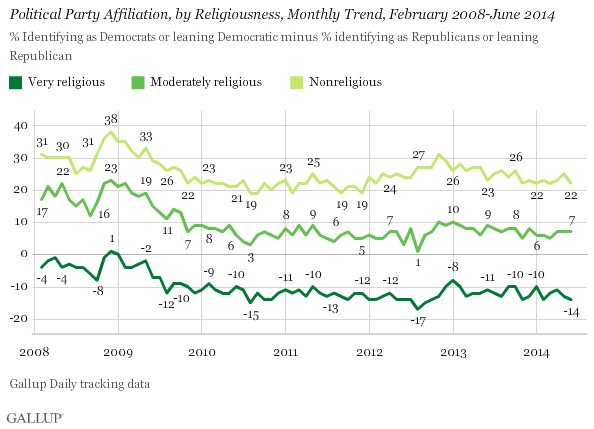
While general party identification trends in the United States have changed dramatically over the last decade, the equation between religion and party identification has apparently remained unchanged. According to a recent Gallup study, religious Americans are most likely to identify with the Republican Party or at least lean towards it rather than identify with or lean toward the Democrats, when compared to those who are not as religious.

Earlier in the year, Gallup concluded that Americans are very religious after 41 percent of all adults in the US said that religion is an important part of their lives and they attend religious ceremonies every week or almost every week. In the same study, 29 percent were classified as moderately religious and 30 percent Americans were perceived as non-religious.
From 2008 to 2014, non-religious Americans have emerged as the most Democratic of the three groups. While all three groups were less Republican and more Democratic in 2008, reflecting the general tilt of the country at that time, the distinctions among adults who are very religious, moderately religious and non-religious were still as noticeable then as they are now. This shows that the religious gap in party identification has remained constant for more than seven years.
The data for the recent survey was based on Gallup’s daily tracking samples of about 30,000 interviews each month from 2008 to 2010 and approximately 15,000 interviews each month in 2013 and 2014. Considering Americans’ religiosity has remained unshaken and very stable for so many years, Gallup concluded that this religious aspect can be a major predictor of the average American’s political leaning.
Gallup also said that the underlying reasons for this relationship are rather complex and have a lot to do with the historical development of partisan politics, differing positions of parties on moral issues and geographic patterns of residency.
Photo Credits: Dreamstime
